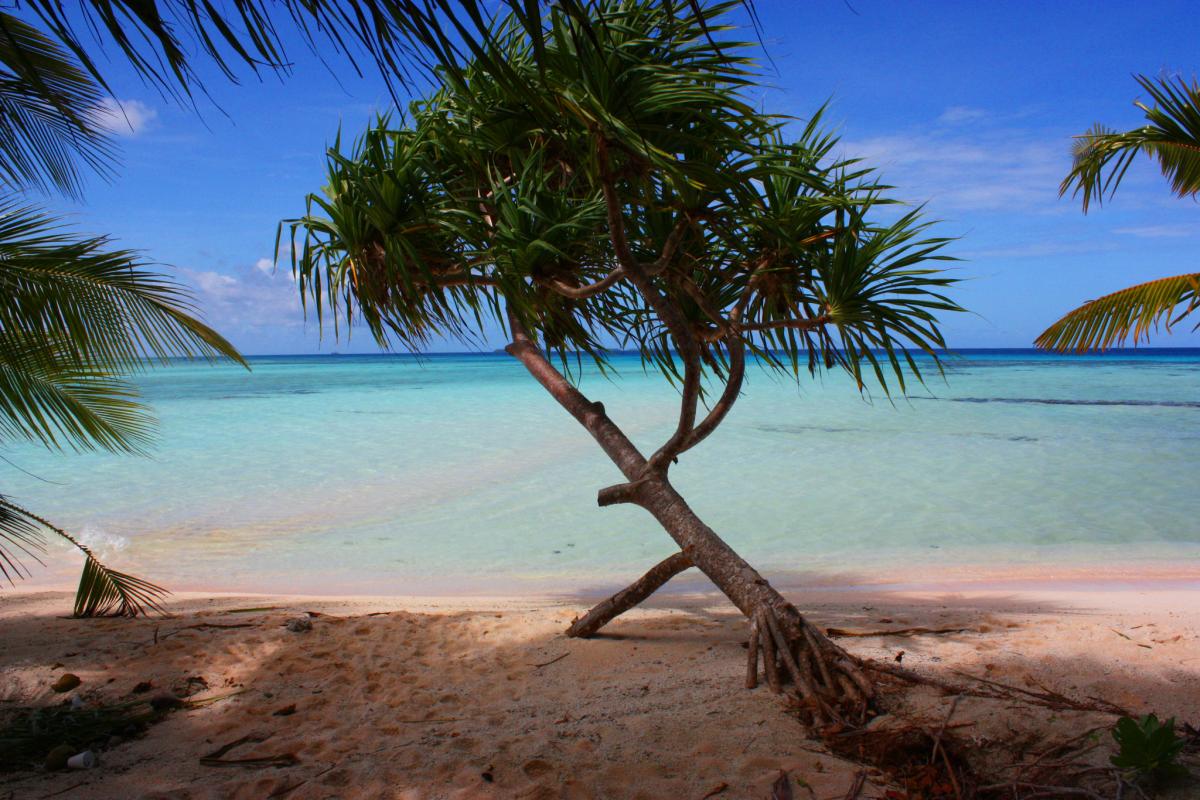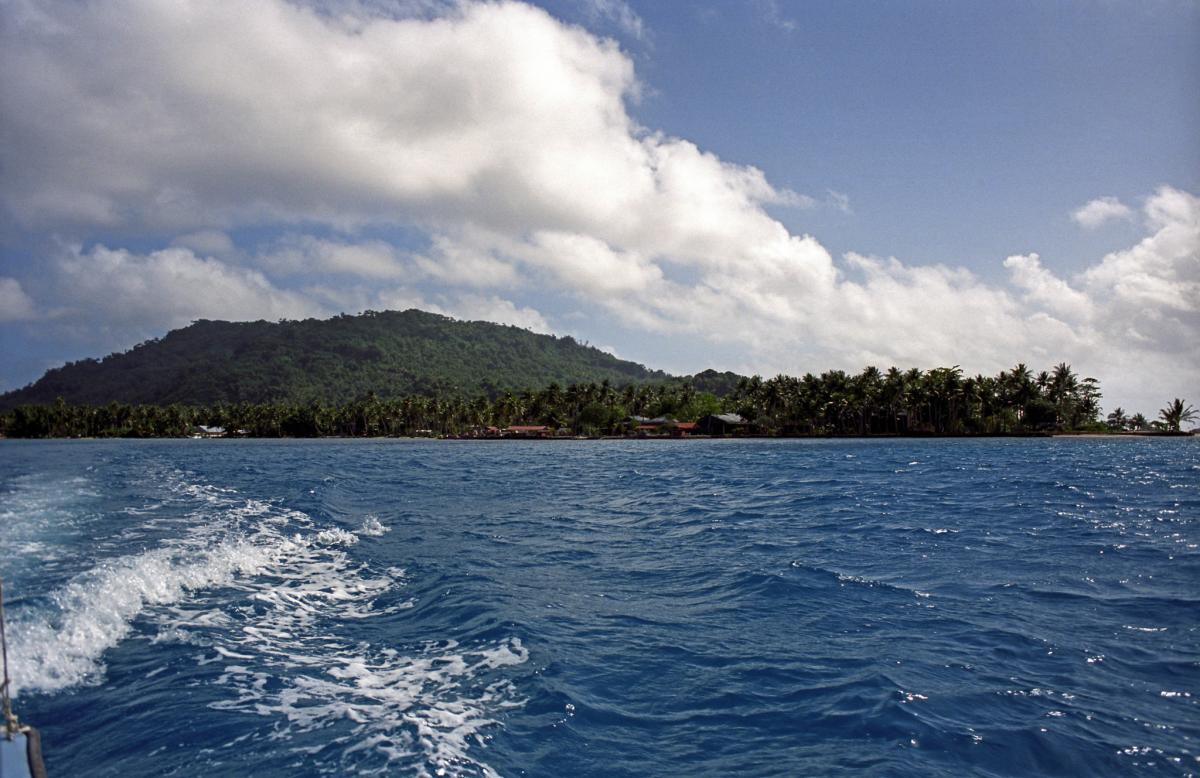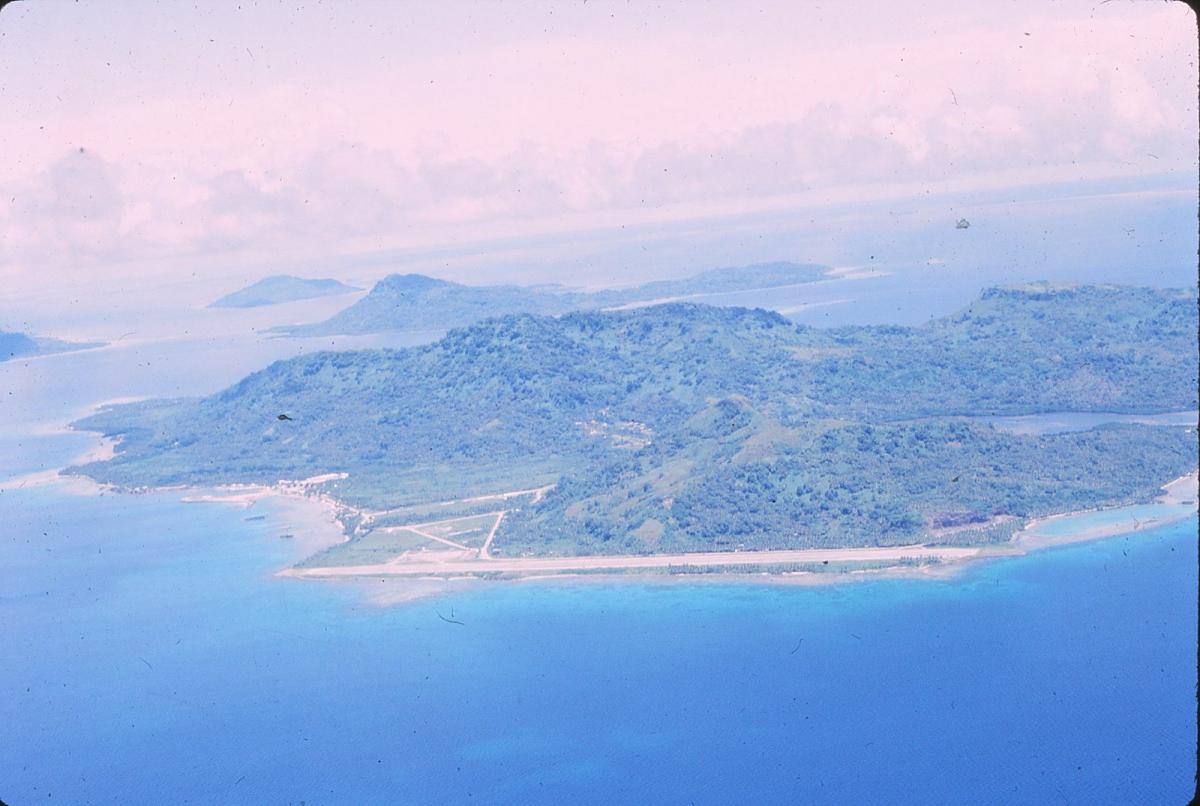V6EU Team will be active from Chuuk Island, IOTA OC - 011, Micronesia, 4 - 16 December 2023.
Team - DL2AWG, DK2AMM, DL2AMD, DF4GV.
Recent DX Spots V6EU
V6EU Log search They will operate on 160, 80, 40, 30, 20, 17, 15, 12, 10m and maybe 60m Bands, SSB, CW, RTTY, FT8.
QSL via DL2AWG.
DXCC Country Micronesia, V6.
The Truk Islands: A Pacific oasis with a rich history
The Truk Islands are located in the southwest Pacific and are part of the Federated States of Micronesia as the state of Chuuk. The islands are part of the Pacific Caroline Islands archipelago and today are a true mecca for snorkelers. The place in essence resembles a lagoon in the form of a huge lake surrounded by reefs, and inside this ring there are 19 small islands and 10 atolls.
 Chuuk Island, Micronesia. Author - ajcabrer.
Chuuk Island, Micronesia. Author - ajcabrer.
A brief glimpse into the history of Truk Island
The history of these picturesque islands begins with their discovery by navigators from Spain. Further, the exploration of the area was continued by the team of the French explorer Dumault-Durville, followed by the famous Russian explorer Fyodor Petrovich Litke. In 1898 the Spanish-American War broke out, at the end of which the state of Micronesia, which had previously belonged to Spain, was sold to Germany. According to the treaty, the Germans now owned all the islands, except Guam. However, with the outbreak of World War I in 1914, the political map in the region changed again, as Micronesia was occupied by the Japanese government, which in 1919 officially (under a League of Nations mandate) took over the territory.
During World War II, the islands were destined to become one of the largest Japanese military bases with an airfield. At that time, the base housed a military contingent of 40,000 soldiers. However, during large-scale military operation Hilston, Japan lost complete control of the territory and the islands came under U.S. control. The U.S. bombing resulted in the sinking of at least 50 Japanese ships and hundreds of aircraft which to this day rest at the bottom of the lagoon.
The succession of changes of government was finally interrupted in 1990 when the UN Security Council recognized the Federated States of Micronesia with the Chuuk Islands as a fully independent state.
 Chuuk Island, Micronesia. Author - Frank Kehl.
Chuuk Island, Micronesia. Author - Frank Kehl.
The Truk Islands - an amazing underwater kingdom
The main feature of this place is not what is located on the island itself, but what is at the bottom of the lagoon. We are talking about dozens of units of Japanese military equipment sunk in 1944, and it's not just sunken ships, but also hundreds of warplanes shot down by American missiles.
Some 20 years after the American crushing strike on the Japanese military base, the fascinating underwater world of Truk Lagoon was discovered by famous adventurers Jacques Yves Cousteau, Klaus Lindemann and Al Giddings. The travelers were simply amazed by the bizarre combination of dilapidated military vehicles, colorful corals, and a variety of underwater flora and fauna.
An Attractive Place for Divers
After discovering its fabulous underwater vistas, Truk Lagoon has quickly become a focal point for diving enthusiasts from all over the world. The local diving season lasts from December to March; the rest of the time, there's a risk of getting caught in the long rainy season.
It is hard to imagine more comfortable conditions for diving under the water than those provided to divers in Truk Lagoon. The water temperature here is up to 30 degrees Celsius, and this with almost no underwater current. The depths here are shallow, which is ideal for beginner divers.
Tourists can consider the underwater treasures on their own, or under the guidance of a guide. As practice shows, it is better not to refuse a guide, as in this cemetery of military equipment can easily get lost. Underwater walks are also pleasant because there are very few dangerous fauna, such as moray eels or scorpions, which can spoil the whole impression.
Military equipment, resting peacefully at the bottom of the lagoon, has long been covered with coral and sponges and has become a haven for colorful fish. Especially interesting to "walk" inside the holds of ships, where everything remains the same as it was on the day of sinking: in their places are ammunition, household goods and other items of the time. No less interesting are the surfaces of the ship decks, where you can see military and special equipment, including tanks, tractors, loading machines, etc.
By the way, the local government is very careful about the welfare of the underwater museum. Thus, it is strictly forbidden to take any, even the smallest souvenirs from the sunken equipment.
 Chuuk Island, Micronesia. Author - Don Brown.
Chuuk Island, Micronesia. Author - Don Brown.
What else can I see and try on Truk Island?
In addition to all the aforementioned underwater beauties, there are other objects of interest that can be found directly on the island itself. Of course, the land sights are also related to the military past of the state. Of historical value are the Japanese lighthouses, which can be reached by car, or you can walk on your own - despite the fact that the structures are located on the hills, the distance is actually not so great, and the slopes are quite gentle.
The lighthouses should definitely be included in your hiking itinerary if you want to enjoy the best view of the picturesque Truk Lagoon.
Lovers of places steeped in history don't miss the opportunity to wander through the network of World War II caves where you can fully experience the atmosphere of that time. Tourists accompanied by local guides visit old military hospitals, libraries, Japanese command posts, firing positions and airstrips left over from a military airfield.
The everyday life of Micronesia, in particular the national cuisine, is of great interest to Europeans. The very location in the bosom of the ocean implies that the diet of the locals is based on seafood, which is presented here in unprecedented abundance. Juicy fruits, vegetables and cereals supplement the diet. By the way, alcohol is prohibited in Micronesia; the only alcoholic beverage you can try is the ancient national drink Sakua, based on the juice extracted from the bark of the hibiscus.

